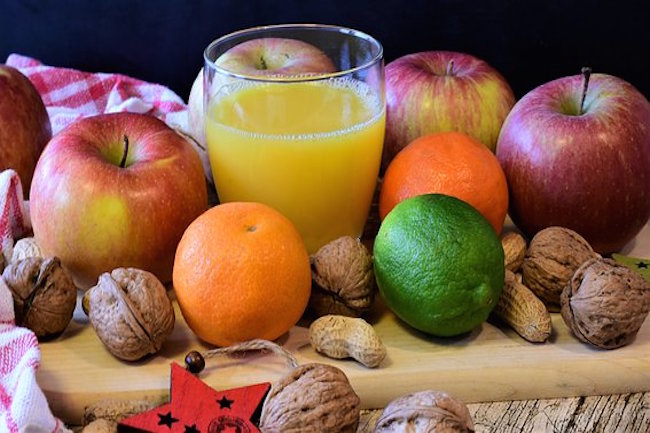Study reveals vitamin C is key to preventing stroke and promoting heart health By Divina Ramirez for Heart.news
Vitamin C is an essential micronutrient that plays a crucial role in regulating immune function and supporting overall immune health. But recent studies suggest that it may also hold the key to stroke prevention and better heart health in the long run.
In one such study, scientists from the Rennes University Hospital in France compared the vitamin C levels of 65 hemorrhagic stroke patients to those of healthy participants. They found that vitamin C levels were greatly lower in stroke patients. They also identified high blood pressure as a leading risk factor for stroke.
Lead researcher and neurologist Stephane Vannier said that the link between vitamin C depletion and a higher risk of hemorrhagic stroke could be associated with the role of vitamin C in blood pressure regulation.
In the future, these findings could aid scientists when studying the effects of vitamin C supplementation on the risk of hemorrhagic stroke, added Vannier. The study appeared online in the journal Neurology.
Low vitamin C levels linked to increased stroke risk
Vannier and his colleagues studied the vitamin C levels of 65 participants who had experienced a spontaneous intracerebral hemorrhage (ICH) or hemorrhagic stroke. This life-threatening type of stroke occurs when there is bleeding within the brain tissue itself. High blood pressure and head trauma are common causes of ICH.
The study also included 65 healthy controls. When the researchers studied both groups’ vitamin C levels, they found that only 41 percent had a normal vitamin C status of more than 38 micromoles per liter (umol/L).
On the other hand, 45 percent of all participants had depleted vitamin C levels (11–38 umol/L), while another 14 percent were deficient in the nutrient (less than 11 umol/L).
The researchers identified high blood pressure, alcohol consumption and being overweight as some of the top risk factors for ICH. Interestingly, participants who had high blood pressure had depleted vitamin C levels.
Furthermore, the researchers discovered that stroke patients with normal vitamin C status spent significantly less time (9.8 days) in the neurology care unit than stroke patients with depleted vitamin C levels (18.2 days).
Vannier suggested that the longer hospital stay could be the consequence of complication-related infections or delayed healing due to vitamin C deficiency. However, further studies are needed to confirm this theory.
Overall, the findings expose a link between vitamin C depletion and increased stroke risk. To maintain healthy vitamin C levels, Vannier recommends taking 120 milligrams (mg) of the vitamin daily. Vitamin C itself can be found in several plant-based foods, including citrus fruits, black currants and parsley. Simply eating vitamin C-rich foods as part of a balanced diet should keep one’s vitamin C levels within the normal range.
Nutrients for stroke prevention and recovery
Good nutrition is essential not only for stroke prevention but also for fast recovery from a stroke event. Aside from vitamin C, regularly consuming certain nutrients as part of a healthy diet can reduce stroke risk, as well as facilitate faster healing. These nutrients include:
- Niacin – Niacin, or vitamin B3, helps boost cognition, memory and neuroplasticity. Niacin can also reduce levels of bad cholesterol, which can otherwise block blood flow to the brain, causing ischemic stroke.
- Vitamin D – Low levels of vitamin D have been associated with a higher risk of high blood pressure, including poor post-stroke outcomes.
- Probiotics – Beneficial bacteria in fermented foods, called probiotics, help protect brain tissue from damage. Recent studies also suggest that probiotic supplementation can lower ischemic stroke risk.
- Cobalamin – Cobalamin, or vitamin B12, helps to restore neurons after a stroke.
- Coenzyme Q10 (CoQ10) – CoQ10 helps reduce cholesterol levels, thus minimizing the risk of heart disease and stroke.
- Docosahexaenoic acid (DHA) – DHA is a type of omega-3 fatty acid that supports brain health. It can also reduce high blood pressure and high cholesterol levels. (Related: DHA supports liver health in people who eat a poor diet.)




